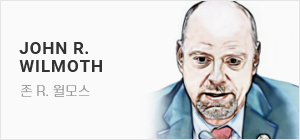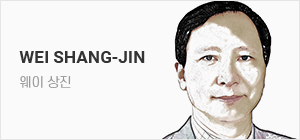

The European Union on June 12, 2024, announced provisional tariffs from 17.4 to 38.1% on imports of Chinese made electric vehicles (EVs). They come after months of investigations by a team of EU experts on the site of Chinese EV producers, pouring over all documents at the selected companies, and interviewing numerous industrial and diplomatic experts. They are meant to be imposed on top of the 10 percent tariffs already in place.
The announced provisional tariffs represent EU experts‘ best estimates of the aggregate rate of subsidies per vehicle that the Chinese EV producers receive from all levels of governments throughout the supply chains, production, and exports. The EU team of investigators in China first sent a request for cooperation to all Chinese EVs. Then among the xxx companies that have pledged full cooperation, they randomly selected 3 (BYD, which happens to be the biggest EV producer, Geely, and SAIC) and poured over all relevant documents and records at these companies, conducted interviews with company insiders, and Chinese and international industry experts. Based on the investigation, they concluded that the rates of subsidies for battery EVs are 17.4% at BYD, 20.0% at Geely, and 38.1%. For other EV producers who have pledged cooperation but were not selected in the sample, the provisional tariff is the average of the three numbers, namely, 22%. For BEV producers who have not pledged cooperation, the tariff will be the maximum of the three, namely, 38.1%. Any produce who believes they should not be charged such a tariff can request an in-depth investigation. (It is possible that many firms do not pledge cooperation because they do not plan to export to the EU market.) Tesla cars out of China will be charged a separate tariff rate to be announced later.
The provisional tariffs might be revised downward if the three producers above can provide evidence that disputes the EU‘s way of computing the subsidies. The provisional tariffs are also meant to be a tool that will indue the Chinese authorities to have a dialogue with the EU to find a way to reduce Chinese BEV exports to the EU. For this reason, one may regard the announced tariffs as the EU’s upper bound estimate of the subsidy per car received by Chinese BEV producers.
The EU finding on subsidy puts spotlight on Biden Administration of anti-subsidy tariff of 100% introduced only a month ago without any serious investigation. It exposes the protectionist nature of the US policies, and further undermines the US claims as a defender of rules based global trading system.
Even before President Biden‘s new 100% tariff on Chinese electric vehicles, the US tariffs on Chinese imports, erected under President Trump and largely maintained by President Biden, are already at a similar level of the infamous US Smoot-Hawley tariffs in the 1930s. A panel at the World Trade Organization ― consisting of trade experts from countries other than the US and China - ruled in 2020 that these tariffs are inconsistent with the US legal obligations at the WTO. Both the Trump and the Biden administrations have chosen to ignore the WTO rules.
Most other governments have chosen to say nothing publicly, partly because the US tariffs, by reducing the Chinese products‘ competitiveness in the US market, have raised the relative competitiveness of their own products in the same market. Indeed, following the Trump tariffs, the US direct imports from China have declined precipitously while its imports from Mexico, India, Vietnam and many other countries have increased. The primary victims of the Trump tariffs, besides Chinese exporters and American consumers, are producers from small and medium sized countries who now face an elevated risk of larger countries imposing protectionist measures with impunity.
The new Biden tariffs on the Chinese EVs are not designed to offset any reasonable estimate of the Chinese subsidy to exports (which are negligible now) but are meant to raise the cost of Chinese EVs in the US market by so much that would pre-emptively block their entry. While the domestic political need for such tariffs is understandable, these tariffs are bad for China, the United States, and the rest of the world.
| ||
| Electric car exports waiting to be loaded on the BYD Explorer No.1, a vessel intended to export Chinese automobiles, at Yantai port, in Shandong province, on January 10. China has mocked the logic behind Biden's electric car concerns. [AFP] |
The tariffs certainly hurt the profit and employment of the EV industry in China and presumably the overall Chinese economy. But it is bad for the United States as well by both raising the prices of American households (as domestic competitors do not have the same pressure to lower their prices and improve their productivity) and delaying Americans‘ transition out of climate-unfriendly traditional automobiles.
President Biden‘s professed objective of the triple digit tariffs is to give US automobile companies a chance to catch up with their Chinese competitors in the EV production, but giving traditional automobiles a more profitable market is a funny way to encourage the transition. A better way to compete is to raise the domestic subsidy to EV R&D, production, and sale. Since climate management produces externality, the world as a whole can benefit from some subsidies. This option is not chosen partly because the US has raised the government debt level so much that any policies that cost more money are harder to contemplate now.
A second option that is substantially less good but still better than the actual Biden policy is to have a temporary tariff that has an explicit sunset clause of say 2-3 years. The sunset clause will give domestic auto manufacturers a much stronger incentive to produce cost-effective EV models in the near future rather than simply delaying the transition to EVs.
The Biden administration‘s hope that the bad economics can be good politics in an election year can also backfire. Many American voters who know these tariffs are bad for both environment and US households may be turned off from voting for Biden in November. Those who mistakenly think the high tariffs are a good idea may very likely credit former President Trump more than President Biden for “pioneering” the idea of aggressive tariffs. They may regard Biden’s latest action as validating Trump‘s “genius” in economic management.
If China chooses to retaliate, especially on “politically sensitive” products, i.e., those made in the US political swing states, the political benefit that the Biden Administration is hoping for could be eroded further. So far, China has not retaliated, perhaps out of a calculation that contributing to a political defeat of Biden in November is not obviously helpful to stabilize the bilateral relationship.
| ||
| Employees of SAIC Motor work on the car production line at the automaker‘s Lingang base in Shanghai [REUTERS] |
Still, it is important to recognize that the Biden tariffs are bad for the rest of the world in many ways. First, it further erodes the global trading rules as it normalizes the behavior of “if my firms cannot compete with foreign firms, I will raise the trade barriers so much that they cannot enter my market.” Second, as EVs are one mechanism for managing climate change, it poisons the spirit and willingness of international cooperation in future climate negotiations. It is likely that the UN Climate Conference in Baku, Azerbaijan in November this year (so-called COP29) and COP30 in Brazil next year will find it a bit harder to reach agreement than before the US and EU tariffs.
The new tariffs from the EU and the United States create two opposing forces in the rest of the world. On the one hand, by shutting the Chinese EVs from the US and EU market, there may be an increase in Chinese EV exports to other markets. This represents an unequivocal benefit to consumers in these countries and an assistance to the needed transition from traditional vehicles to EVs. For countries with little domestic auto industry such as Australia and New Zealand, they derive benefits without new losers. But for countries with a sizable auto industry, such as France, UK, Germany, Japan, and Korea, this represents an even greater competitive pressure. The governments in these countries will face political pressure to imitate the US protectionist measures. The world would have been better off if the major countries negotiate for a common pro-climate subsidy scheme for electric vehicles and a common tax on carbon emissions.


2024년 6월 12일, 유럽연합(EU)은 중국산 전기차(EV) 수입에 대해 17.4%에서 38.1%까지 인상된 관세를 부과할 예정이라고 발표했다. 이러한 조치는 중국 전기차 제조업체 현장에서 수개월 동안 EU 전문가 팀이 조사한 결과에 따른 것이다. 전문가 팀은 선정된 기업의 모든 문서를 검토하고 다수의 산업 및 외교 전문가들과 인터뷰를 진행하였다. 이번 관세는 이미 시행 중인 10% 관세에 추가로 적용될 예정이다.
발표된 잠정 관세는 중국 전기차 제조업체가 공급망, 생산 및 수출 과정 전반에서 정부로부터 받는 보조금 총액을 차량당 비율로 산정한 EU 전문가들의 최선의 추정치를 반영한 것이다. 중국 내 EU 조사팀은 먼저 모든 중국 전기차 제조업체에 협조 요청을 보냈다. 그 후, 협조를 약속한 여러 업체 중 무작위로 3개 회사(어쩌다 보니 세계 최대 전기차 제조업체인 비야디(BYD) 전기차와 지리(Geely) 전기차, 상하이자동차(SAIC))를 선택하여 이들 회사의 관련 문서와 기록을 철저히 검토하고, 회사 내부 관계자 및 중국과 국제 산업 전문가들과 심층 인터뷰를 진행했다. 조사 결과, 배터리 전기차에 대한 보조금 비율은 비야디전기차 17.4%, 지리전기차 20.0%, 상하이자동차 38.1%로 나타났다. 협조를 약속했지만 선정되지 않은 다른 전기차 제조업체들에는 세 업체의 평균인 22%의 잠정 관세가 적용된다. 조사에 협조하지 않은 나머지 중국 배터리 전기차 업체에는 일괄적으로 세 업체 중 가장 높은 38.1%의 추가 관세율이 부과될 예정이다. 이러한 관세가 부당하다고 생각하는 제조업체는 심층 조사를 요청할 수 있다(기업 다수가 EU 시장에 수출할 계획이 없어서 협력을 약속하지 않을 수 있음). 한편, 중국에서 생산된 테슬라 차량에는 별도의 관세율이 부과될 계획이며, 이는 추후 발표될 예정이다.
비야디전기차, 지리전기차, 상하이자동차 등 세 제조업체가 EU의 보조금 산정 방식에 이의를 제기할 수 있는 증거를 제시할 경우, 잠정 관세는 하향 조정될 수도 있다. 또한, 이번 잠정 관세는 중국 당국이 EU와의 대화를 통해 중국산 배터리 전기차의 EU 수출을 줄이는 방안을 모색하도록 유도하는 도구로도 사용될 예정이다. 따라서 이번 관세는 중국 배터리 전기차 제조업체가 차량당 받는 보조금에 대한 EU의 상한선 추정치로 볼 수도 있을 것이다.
EU의 반(反)보조금 조사 결과는 한 달 전 별다른 조사 없이 도입된 100% 반(反)보조금 관세를 부과한 바이든 행정부의 조치를 다시금 주목하게 한다. 이는 미국 정책의 보호주의적 성격을 드러내며, 규칙 기반의 글로벌 무역 시스템의 수호자라는 미국의 주장을 더욱 약화시킨다.
바이든 대통령이 중국산 전기차에 대해 새로운 100% 관세를 도입되기 이전에도, 트럼프 대통령 시절 도입되고 바이든 대통령이 대부분 그대로 유지해온 중국산 수입품에 대한 미국의 관세는 이미 1930년대 악명 높은 스무트-홀리 관세 수준에 도달해 있었다. 2020년, 미국과 중국을 제외한 다른 국가의 무역 전문가들로 구성된 세계무역기구(WTO) 패널은 이러한 관세가 미국의 WTO 법적 의무와 일치하지 않는다고 판결했다. 그러나 트럼프 행정부와 바이든 행정부 모두 WTO 규칙을 따르지 않기로 했다.

대부분의 다른 국가들은 공개적으로 의견을 표명하지 않고 있다. 미국의 관세 부과로 인해 미국 시장 내 중국 제품의 경쟁력이 떨어지면서 자국 제품의 경쟁력이 상대적으로 높아졌기 때문이다. 실제로 트럼프 관세 이후 미국의 중국산 직수입은 급격히 감소한 반면, 멕시코, 인도, 베트남 등 여러 나라로부터의 수입은 증가했다. 트럼프 관세의 주된 피해자는 중국 수출업체와 미국 소비자 이외에도 중소국가의 제조업체로 대국의 무분별한 보호주의 조치에 직면할 위험에 처할 수 있게 되었다.
중국산 전기차에 부과되는 바이든 행정부의 새로운 관세는 (현재 미미한 수준인) 중국 수출 보조금에 대한 합리적인 추정치를 상쇄하기 위함이 아니다. 오히려, 중국산 전기차의 미국 시장 진출을 원천 차단할 만큼 큰 가격 인상을 목표로 하고 있다. 국내정치적인 관점에서 이 같은 새로운 관세가 필요할 수 있다는 것은 이해할 수 있지만, 이는 중국과 미국, 더 나아가 전 세계에 악영향을 미친다.
관세는 분명히 중국 전기차 산업의 수익과 고용, 그리고 중국 경제 전반에 타격을 줄 것이다. 그러나 동시에 미국에도 부정적인 영향을 미친다. 국내 경쟁업체들이 가격 인하와 생산성 향상에 대한 압박을 받지 않게 되면, 미국 가계의 물가가 상승하고 친환경 자동차로의 전환이 지연될 수 있기 때문이다.
바이든 대통령이 주장하는 세 자릿수 관세의 목표는 전기차 생산 분야에서 미국 자동차 회사들이 중국 경쟁업체들을 따라잡을 기회를 제공하기 위한 것이다. 그러나 전통적인 자동차 시장을 더 수익성 있게 만드는 방식으로 전기차로의 전환을 촉진한다는 것은 우스운 생각이다. 대신, 전기차 연구개발, 생산 및 판매에 대한 국내 보조금을 늘리는 것이 더 효과적인 경쟁 전략이다. 기후 관리는 외부성을 발생시키기 때문에 전 세계가 어느 정도 보조금의 혜택을 볼 수 있다. 이 옵션이 선택되지 않은 이유 중 하나는 미국이 국가 부채 수준을 너무 많이 높인 현재로서는 더 큰 비용이 드는 정책을 고려하기가 어려워졌기 때문이다.
좋다고 보기에는 무리가 있지만, 실제 바이든 정책보다는 더 나은 두 번째 옵션은 2~3년의 명시적인 일몰 조항을 가진 일시적인 관세를 도입하는 것이다. 이러한 일몰 조항은 국내 자동차 제조업체들이 단순히 전기차 전환을 지연시키기보다는 가까운 미래에 비용 효율적인 전기차 모델을 생산하도록 강력한 인센티브를 제공할 것이다.
선거 해에 나쁜 경제가 좋은 정치가 될 수 있다는 바이든 행정부의 희망도 역효과를 낼 수 있다. 이러한 관세가 환경과 미국 가계 모두에 좋지 않다는 것을 인지하고 있는 유권자들은 11월에 바이든에게 투표하지 않을 수 있다. 반면, 높은 관세가 좋은 생각이라고 오해하는 사람들은 공격적인 관세 아이디어를 ‘선구적으로’ 제시한 트럼프 전 대통령을 바이든 대통령보다 더 높이 평가할 가능성이 크다. 즉, 바이든의 최근 조치를 트럼프의 경제적 ‘천재성’을 입증하는 것으로 간주할 수도 있다.
중국이 특히 미국의 정치적 경합주에서 생산되는 ‘정치적으로 민감한’ 제품에 대해 보복 조치를 취한다면 바이든 행정부가 기대하는 정치적 이익은 더욱 감소할 수 있다. 현재까지 중국은 보복을 자제하고 있는데, 이는 11월에 바이든의 정치적 패배에 이바지하는 것이 양국 관계를 안정시키는 데 명백히 도움이 되지 않을 것이라는 계산 때문일 것이다.

하지만, 바이든 행정부의 관세가 여러모로 전 세계에 해롭다는 점을 인식하는 것이 중요하다. 첫째, 이는 ‘우리 기업이 외국 기업과 경쟁할 수 없다면 무역 장벽을 높여 외국 기업이 우리 시장에 진입하지 못하게 하겠다’라는 행위를 정상화함으로써 글로벌 무역 규칙을 더욱 훼손시킨다. 둘째, 전기차는 기후 변화 대응을 위한 중요한 메커니즘이기 때문에, 이러한 관세는 미래 기후 협상에서 국제 협력의 정신과 의지를 훼손한다. 올해 11월 아제르바이잔 바쿠에서 개최되는 유엔 기후 변화 회의(COP29)와 내년 브라질에서 열리는 COP30에서는 미국과 EU의 관세로 인해 이전보다 합의 도출이 더 어려워질 가능성이 크다.
EU와 미국의 새로운 관세는 전 세계에서 두 가지 상반된 영향을 미치고 있다. 한편으로는, 중국 전기차가 미국과 EU 시장에서 배제됨에 따라 다른 시장에서 중국 전기차 수출이 증가할 수 있다. 이는 해당 국가의 소비자들에게 명백한 혜택이 되며, 전통적인 자동차에서 전기차로의 전환을 촉진하는 데 도움이 될 것이다. 호주나 뉴질랜드와 같이 자동차 산업이 약한 나라들은 새로운 피해 없이 이러한 혜택을 누릴 수 있을 것이다. 그러나 프랑스, 영국, 독일, 한국, 일본처럼 상당한 규모의 자동차 산업을 보유한 국가들에게는 더 큰 경쟁 압박으로 작용할 것이다. 이러한 국가들의 정부는 미국의 보호주의 조치를 모방하라는 정치적 압박을 받게 될 것이다. 주요 국가들이 전기차에 대한 공통된 친기후 보조금 제도와 탄소 배출에 대한 공통된 과세를 협상했다면, 세계는 더욱 나은 상황에 있었을 것이다.
bonsang@heraldcorp.com














